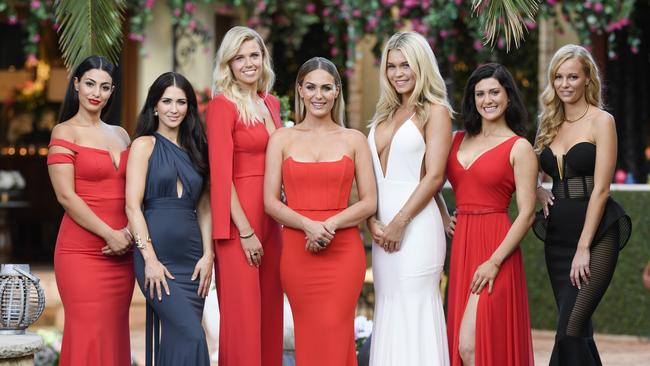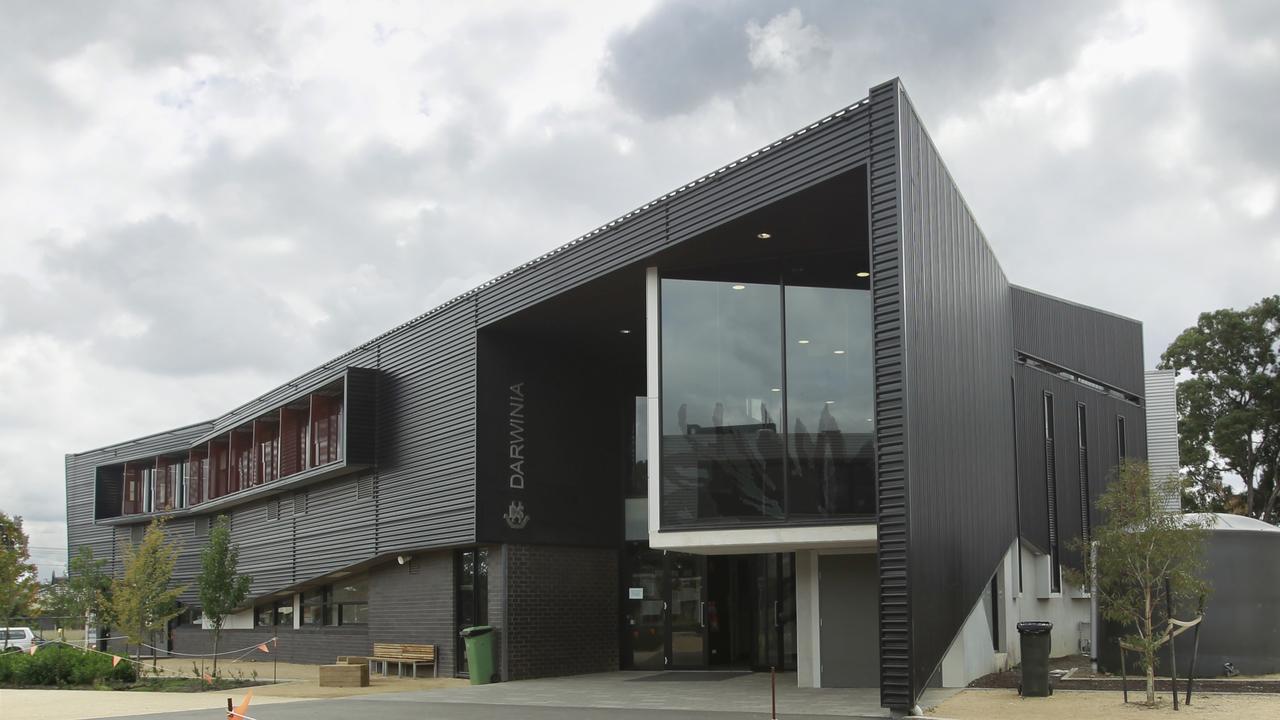What to consider when looking for your ideal uni match.
WITH all those eligible bachelor’s degrees out there vying for your attention, how do you pick just one? Here’s our guide to finding your ideal uni match.

VCE
Don't miss out on the headlines from VCE . Followed categories will be added to My News.
CHOOSING a tertiary education provider is kind of like being on The Bachelor
There are all these great universities out there vying for your attention but, at the end of the day, you have to pick just one.
You go on a few group dates (er, I mean check out some Open Days) to kickstart the whole getting to know you process, then, once you’ve narrowed down your choices, you might even introduce them to your parents.
Still, with so many eligible bachelors out there, it can be hard to find your perfect match.
Sometimes, you think you’ve met your Mr or Mrs Right, only to realise years down the track that the relationship isn’t what you thought it would be.
It’s a daunting process.
What do you look for in a university? Do you have the same career goals? What do you focus on? How do you know you’re making the right decision? Are they only in it for your money? With such high stakes, it’s easy to lose sight of what’s really important.
To keep you on the right course, so to speak, here are a few things to consider when looking for your ideal uni match.
#willyouacceptthiscourse
What are you looking for in a partner?
This is one of the most important things to consider when it comes to choosing a tertiary degree. Perhaps prestige is really important to you and you don’t mind what you study as long as it’s at a particular university. Or maybe you’re all about career options and want to study something that will enable you to gain employment in a particular field. Pay attention to things like course completion rates and graduate employment rates. If it helps, create a list. Decide on your must-haves, nice-to-haves and absolute non-negotiables and go from there.
What are your non-negotiables?
Your non-negotiables will be dependent on your desired qualification or career goals. Many professions — such as medicine, teaching or architecture — require a university degree for entry. If you want to be a physiotherapist, for example, you have no choice but to go to a university. This will dictate the type of institution you study at. There are three types of tertiary institutions: universities, TAFEs and private providers. Though there might be some overlap between them, there are certain qualifications that can only be attained from specific institutions. Another thing to keep in mind is whether or not a particular course is recognised by regulatory or governing bodies. If you want to become an Accredited Practising Dietitian, it’s a good idea to check whether or not the course you are interested in is accredited by the Dietitians Association of Australia.
Get to know each other
Do your research. Who are the lecturers, how is the course delivered, what subjects will you be covering, can you do a summer semester, do they offer international exchange programs and, if so, in what years can you apply for them? It’s these little details that can often have a big impact not only on your tertiary experience, but the quality of your education.
It’s OK to see more than one person
You want to make sure that your chosen course stacks up against the competition so don’t settle down too early. Go to open days. Ask questions. Compare courses across different institutions. It’s a good idea to keep your options open — that way you can make sure you find the best fit for you.
Would you be willing to travel?
Location can be a big deal when it comes to study options. Are you looking for something close to home, or are you happy to travel for the right course? Is living on campus an option? Many institutions have multiple locations so it’s a good idea to check if your course is offered across all of them. Maybe you don’t want to go to university at all and would prefer to complete your course via distance education. If this is the case — check with your institution whether or not this is offered for your degree.
Are you even available?
What are the entry requirements for the job and do you meet them? If not, what are the alternative pathways? If you’re hellbent on studying medicine at Monash University but haven’t taken the required prerequisite subjects to get in, or won’t achieve the clearly-in ATAR, are there other ways to get into the course? Be realistic about your expectations and make sure you have back-up options, just in case. Perhaps you’re happy to take a year of health science and then apply for a transfer into medicine after that. Speak to the institutions to find out what you can do if you don’t get an offer.
What is their relationship history like?
Before you decide on a course, it’s good to know what their exes are like and why they didn’t work out. Does the institution have a solid reputation for delivering employable graduates? What is the dropout rate like? What do ex-students say about their time there? If you’re not sold on these things, keep looking until you find something you’re comfortable with.
Are you looking for something fun or are you after a more serious relationship
Part of the fun of tertiary education is campus life so make sure you check out the place that you’re likely to spend A LOT of time at over the next four years. What is the campus like? Would you prefer something big and central or small and cosy? Do you like hustle and bustle or would you prefer a regional setting? Do they have good facilities? What’s the coffee scene like? Do they have social clubs or societies? Regardless of whether you’re looking for a fun environment, vibrant social scene or extra-curricular activities, each institution has its own personality so find the one that works best with yours.
I ain’t saying she a gold digger ….
It might not seem important when you’re starting out, but when you’re still paying off your HECS-HELP loan 10 years later, you might wish you’d paid more attention. Sure, that might seem like a long way off, but for the sake of your future self, promise us you’ll at least have a look at the fee structure. Is the course Commonwealth Supported or is it full-fee? Are scholarships available? Even if you’re not paying it now, there is a big difference between 30k and 60k so if you’re tossing up between two institutions, this could be the tie breaker.
At the end of the day, you can always break up
The beautiful thing about university is — if you pick a degree and get to the end of the first year and realise you really aren’t enjoying it, you can always change. You’re not locked in for the long-term so if you can’t see yourself working in the field, or the subject matter isn’t quite what you thought — there’s nothing wrong with pivoting and trying something else. Depending on what you change to, you might even be able to get credits for the work you’ve already done. Speak to your course advisers to find out what your options are.


